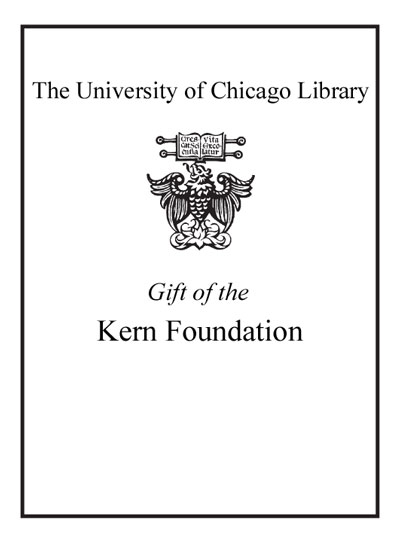Review by Choice Review
The former dean of the Yale Law School and now associated with Yale's Directed Studies Program, Kronman offers a lengthy exposition of his personal theology. He has sought to preserve the Greek sense of the divinity of the world, denied in biblical religions, while avoiding the Greek obsession with abstract ideas that denied value to the individual; the unique value of every individual is the key lesson of biblical theology. The book comprises a lengthy introduction (30 pages), 37 discrete essays (ranging in length from 11 to 67 pages), a brief epilogue, and 54 pages of notes. The total exceeds a thousand pages and demands considerable effort, but every step in the exposition is worked out with methodical care, and the pieces fit together well. This reviewer found the end result impressive and thought provoking, though not entirely convincing; religious seekers and those who study the history of religious searching will find much here of value, though it should also be noted that the writer's deep erudition is both a blessing and a challenge as the book goes on. Those with a background in religious thought will want to read this book. Summing Up: Recommended. Upper-division undergraduates through faculty and professionals; general readers. --Robert Goldenberg, Stony Brook University (SUNY)
Copyright American Library Association, used with permission.
Review by Publisher's Weekly Review
Situating his book between the spiritual polarities of atheist and true believer, Kronman (Education's End) focuses on a third way of thinking about the afterlife: born-again paganism. Critiquing the loss of love and gratitude that comes with what he calls the self-defeating doctrine of Christian salvation and the disenchanted "loveless world of rights" it has created ("the poisonous fruit of the Christian religion"), Kronman recommends a religion that "reconciles the longing to be close to God with the [individualistic] ideals of our secular age." Part intellectual history and part doctrinal statement, this massive confessional work is concerned with humans making their way in the modern world with joy and gratitude. In order to make his case, Kronman seeks to dissolve what he sees as Aristotle's errors and to deconstruct the disenchanting philosophy of Christian salvation. Furthermore, he explores the practical implications of born-again pagan theology, specifically through the writings of Baruch Spinoza (the book's hero), Walt Whitman, and Friedrich Nietzsche. The book is daunting in length (over 1,000 pages), and its unapologetic emphasis on Western philosophy (to the neglect of philosophies stemming from other worldviews) limits it from being truly universal in scope. However, what the book diligently provides is an intellectual history of neo-paganism and a commendable attempt at navigating the practical ethics of what a post-Christian society would look like. (Oct.) © Copyright PWxyz, LLC. All rights reserved.
Review by Choice Review
Review by Publisher's Weekly Review

